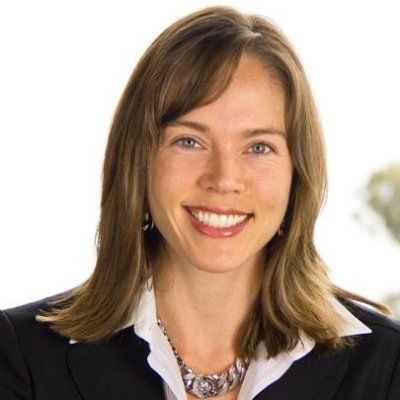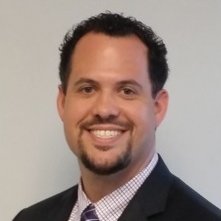 I’ve been in New Zealand this week, meeting with government, academic, and industry leaders to discuss the IT challenges ahead - social networking-based teamwork for health, mobile applications, precision medicine analytics for decision support, and cloud computing all within a framework of protecting privacy. I believe that New Zealand has a unique opportunity to leapfrog the rest of the world with healthcare IT breakthroughs that show the rest of us what is possible from a 4.5 million person learning lab. Why? The perfect storm for innovation requires alignment of technology, psychology, and implementation. New Zealand is divided into 20 District Health Boards which improve the health of their populations by delivering high quality and accessible health care...
I’ve been in New Zealand this week, meeting with government, academic, and industry leaders to discuss the IT challenges ahead - social networking-based teamwork for health, mobile applications, precision medicine analytics for decision support, and cloud computing all within a framework of protecting privacy. I believe that New Zealand has a unique opportunity to leapfrog the rest of the world with healthcare IT breakthroughs that show the rest of us what is possible from a 4.5 million person learning lab. Why? The perfect storm for innovation requires alignment of technology, psychology, and implementation. New Zealand is divided into 20 District Health Boards which improve the health of their populations by delivering high quality and accessible health care...
data exchange
See the following -
HLN and Oregon Health Authority Present Optional Approaches to Oregon's School Immunization Reporting Process at Atlanta Conference
 At the 2018 National Immunization Conference (NIC) held in Atlanta May 15-17, HLN co-presented Diverse Stakeholder Perspectives to Improve Oregon’s School Immunization Reporting Process in collaboration with the Oregon Immunization Program (OIP). Aaron Dunn, Oregon’s Immunization Program Manager, and Marcey Propp, HLN Project Manager, presented the project context, approach, and outcomes as part of the segment for Improving measurement and reporting to foster clear vaccine communication. The project context included antiquated technology, the growing complexity of vaccine requirements, and excessive, redundant and unnecessary workload that culminated in making the current school immunization reporting process unsustainable.
At the 2018 National Immunization Conference (NIC) held in Atlanta May 15-17, HLN co-presented Diverse Stakeholder Perspectives to Improve Oregon’s School Immunization Reporting Process in collaboration with the Oregon Immunization Program (OIP). Aaron Dunn, Oregon’s Immunization Program Manager, and Marcey Propp, HLN Project Manager, presented the project context, approach, and outcomes as part of the segment for Improving measurement and reporting to foster clear vaccine communication. The project context included antiquated technology, the growing complexity of vaccine requirements, and excessive, redundant and unnecessary workload that culminated in making the current school immunization reporting process unsustainable.
- Login to post comments
Interoperability by Design: FDA Issues New Final Guidance for Connected Medical Devices
 The FDA is focusing on safety and effectiveness of interconnected medical devices with the issuance of final guidance on medical device interoperability, released last week. As the FDA notes, medical devices are becoming increasingly connected to one another and to other technologies, and it is critical to address their ability to exchange and use information safely and effectively. For device manufacturers, this guidance provides clarity on how the FDA is thinking about interoperability and patient safety in the premarket submission process and provides considerations for manufacturers in the development and design of interoperability medical devices...
The FDA is focusing on safety and effectiveness of interconnected medical devices with the issuance of final guidance on medical device interoperability, released last week. As the FDA notes, medical devices are becoming increasingly connected to one another and to other technologies, and it is critical to address their ability to exchange and use information safely and effectively. For device manufacturers, this guidance provides clarity on how the FDA is thinking about interoperability and patient safety in the premarket submission process and provides considerations for manufacturers in the development and design of interoperability medical devices...
- Login to post comments
Is EHR data blocking really as bad as ONC claims?
 Consensus that EHR vendors and profit-hungry hospitals are intentionally making it hard for patients and others to access date is based on evidence – much of it put forth by the Office of the National Coordinator for Health IT – that is largely anecdotal. Center for Medical Interoperability vice president Kerry McDermott says data blocking is a systemic issue because information sharing is a new practice in healthcare...
Consensus that EHR vendors and profit-hungry hospitals are intentionally making it hard for patients and others to access date is based on evidence – much of it put forth by the Office of the National Coordinator for Health IT – that is largely anecdotal. Center for Medical Interoperability vice president Kerry McDermott says data blocking is a systemic issue because information sharing is a new practice in healthcare...
- Login to post comments
Mother Jones piece hits Epic hard: 5 criticisms of the EHR vendor
For a company that is notorious for its lack of media interaction, Epic Systems often finds itself in headlines, for better or for worse. The latest Epic media storm was delivered by a Mother Jones piece in which the author criticized the vendor and the health IT marketplace as failing in its mission to help patients and save money through digitization. Author Patrick Caldwell wrote the healthcare industry has largely underachieved in its goal to digitize medical records and cut waste and costs associated with paper records.
- Login to post comments
New Zealand Can Lead Healthcare IT
- Login to post comments
Obama Administration Announces Key Actions to Accelerate Precision Medicine Initiative
 A year ago the President announced the launch of the Precision Medicine Initiative to accelerate a new era of medicine that delivers the right treatment at the right time to the right person, taking into account individuals’ health history, genes, environments, and lifestyles. Precision medicine is already transforming the way diseases like cancer and mental health conditions are treated. Molecular testing for cancer patients lets physicians and patients select treatments that improve chances of survival and reduce adverse effects...
A year ago the President announced the launch of the Precision Medicine Initiative to accelerate a new era of medicine that delivers the right treatment at the right time to the right person, taking into account individuals’ health history, genes, environments, and lifestyles. Precision medicine is already transforming the way diseases like cancer and mental health conditions are treated. Molecular testing for cancer patients lets physicians and patients select treatments that improve chances of survival and reduce adverse effects...
- Login to post comments
ONC Blockchain Challenge and the Birth of the Cryptocitizen for Healthcare
 Who spends the time to write a 10-page proposal paper that is going to a government agency? Everyone knows that even if the paper is read nothing will happen, right? We as a society have to believe in something, and if we are going to invest time, working towards improving the health of a nation is a noble first step. The National Institute of Standards and Technology (NIST), in partnership with the Office of the National Coordinator for Health Information Technology (ONC), launched a request for papers called the ONC Blockchain Challenge...
Who spends the time to write a 10-page proposal paper that is going to a government agency? Everyone knows that even if the paper is read nothing will happen, right? We as a society have to believe in something, and if we are going to invest time, working towards improving the health of a nation is a noble first step. The National Institute of Standards and Technology (NIST), in partnership with the Office of the National Coordinator for Health Information Technology (ONC), launched a request for papers called the ONC Blockchain Challenge...
- Login to post comments
Open Chemistry Project Raises Up the Next Generation of Researchers
 In 2007 I took part in Google Summer of Code (GSoC) developing the Avogadro application. As we were developing Avogadro, we founded The Open Chemistry project as an umbrella project to develop related tools for chemistry and materials science. Our goal is to bring high quality open source tools to research communities working in these areas, and to develop other tools to complement the Avogadro molecular editor. This year we were very pleased to be selected as a mentoring organization for GSoC; a few of our mentors are Geoff Hutchison, Adam Tenderholt, David Koes, and Karol Langner, who are all long-time contributors in related projects. And, we were lucky to get three slots for student projects...
In 2007 I took part in Google Summer of Code (GSoC) developing the Avogadro application. As we were developing Avogadro, we founded The Open Chemistry project as an umbrella project to develop related tools for chemistry and materials science. Our goal is to bring high quality open source tools to research communities working in these areas, and to develop other tools to complement the Avogadro molecular editor. This year we were very pleased to be selected as a mentoring organization for GSoC; a few of our mentors are Geoff Hutchison, Adam Tenderholt, David Koes, and Karol Langner, who are all long-time contributors in related projects. And, we were lucky to get three slots for student projects...
- Login to post comments
Patient-Controlled Data: The Key to Interoperability?
 Mr. Nagpal argues the issue here is one of who controls patient data — is it the patients themselves or care providers and vendors? He says if patients control their data — choose who gets access to it and see who's doing what with it — many of the proposed barriers to interoperability would dissolve. "Being able to access our own information from across our care team in a joined up manner, and then being able to determine who can access that information and for what uses, I think of these as fundamental rights," Mr. Nagpal says. "Given these rights, each one of us can grant any member of our care team, including our friends and family, researchers and any innovator with an interesting solution, with access to our data under our control"
Mr. Nagpal argues the issue here is one of who controls patient data — is it the patients themselves or care providers and vendors? He says if patients control their data — choose who gets access to it and see who's doing what with it — many of the proposed barriers to interoperability would dissolve. "Being able to access our own information from across our care team in a joined up manner, and then being able to determine who can access that information and for what uses, I think of these as fundamental rights," Mr. Nagpal says. "Given these rights, each one of us can grant any member of our care team, including our friends and family, researchers and any innovator with an interesting solution, with access to our data under our control"
- Login to post comments
Pharmaceutical And IT Communities Collaborate On OASIS Clinical Trial Data Standard For Content Management Systems
The pharmaceutical community, health care organizations, and software providers are coming together at the OASIS open standards consortium to define a machine-readable content classification standard for the interoperable exchange of clinical trial data via content management systems. The work of the new OASIS Electronic Trial Master File (eTMF) Standard Technical Committee will promote interoperability across diverse computing platforms and cloud networks within the clinical trials community.
- Login to post comments
Technical Requirements For Coordinating Care In An Accountable Care Organization
The concept of an Accountable Care Organization (ACO) reflects modern hopes to improve medicine and cut costs in the health system. Tony McCormick, a pioneer in the integration of health care systems, describes what is needed on the ground to get doctors working together. Read More »
- Login to post comments
The Number Of Health Information Exchange Efforts Is Declining, Leaving The Viability Of Broad Clinical Data Exchange Uncertain
The diffusion of health information exchange (HIE), in which clinical data are electronically linked to patients in many different care settings, is a top priority for policy makers. To drive HIE, community and state efforts were federally funded to broadly engage providers in exchanging data in ways that improved patient care...
- Login to post comments
Ticking All The Boxes For A Health Care Upgrade At Strata Rx
What is needed for successful reform of the health care system? Here’s what we all know: that a data-rich health care future is coming our way. And what it will look like, in large outlines. Health care reformers have learned that no single practice will improve the system. All of the following, which were discussed at O’Reilly’s recent Strata Rx conference, must fall in place. Read More »
- Login to post comments
TulaSalud: An m-health System for Maternal and Infant Mortality Reduction in Guatemala
The Guatemalan NGO (Non-Governmental Organization) TulaSalud has implemented an m-health project in the Department of Alta Verapaz. This Department has 1.2 million inhabitants (78% living in rural areas and 89% from indigenous communities) and in 2012, had a maternal mortality rate of 273 for every 100,000 live births. This m-health initiative is based on the provision of a cell phone to community facilitators (CFs). The CFs are volunteers in rural communities who perform health prevention, promotion and care. Thanks to the cell phone, the CFs have become tele-CFs who able to carry out consultations when they have questions; send full epidemiological and clinical information related to the cases they attend to; receive continuous training; and perform activities for the prevention and promotion of community health through distance learning sessions in the Q’eqchí and/or Poqomchi’ languages...
- Login to post comments
UMD Researchers Develop Tool to Counter Public Health IT Challenges
 Front-line protection of U.S. communities against disease epidemics relies on seamless information sharing between public health officials and doctors, plus the wherewithal to act on that data. But health departments have faltered in this mission by lacking guidance to effectively strategize about appropriate “IT investments. And incidents like the current Zika crisis bring the issue to the forefront,” says Ritu Agarwal, Robert H. Smith Dean's Chair of Information Systems and Senior Associate Dean for Faculty and Research at the University of Maryland’s Robert H. Smith School of Business...
Front-line protection of U.S. communities against disease epidemics relies on seamless information sharing between public health officials and doctors, plus the wherewithal to act on that data. But health departments have faltered in this mission by lacking guidance to effectively strategize about appropriate “IT investments. And incidents like the current Zika crisis bring the issue to the forefront,” says Ritu Agarwal, Robert H. Smith Dean's Chair of Information Systems and Senior Associate Dean for Faculty and Research at the University of Maryland’s Robert H. Smith School of Business...
- Login to post comments